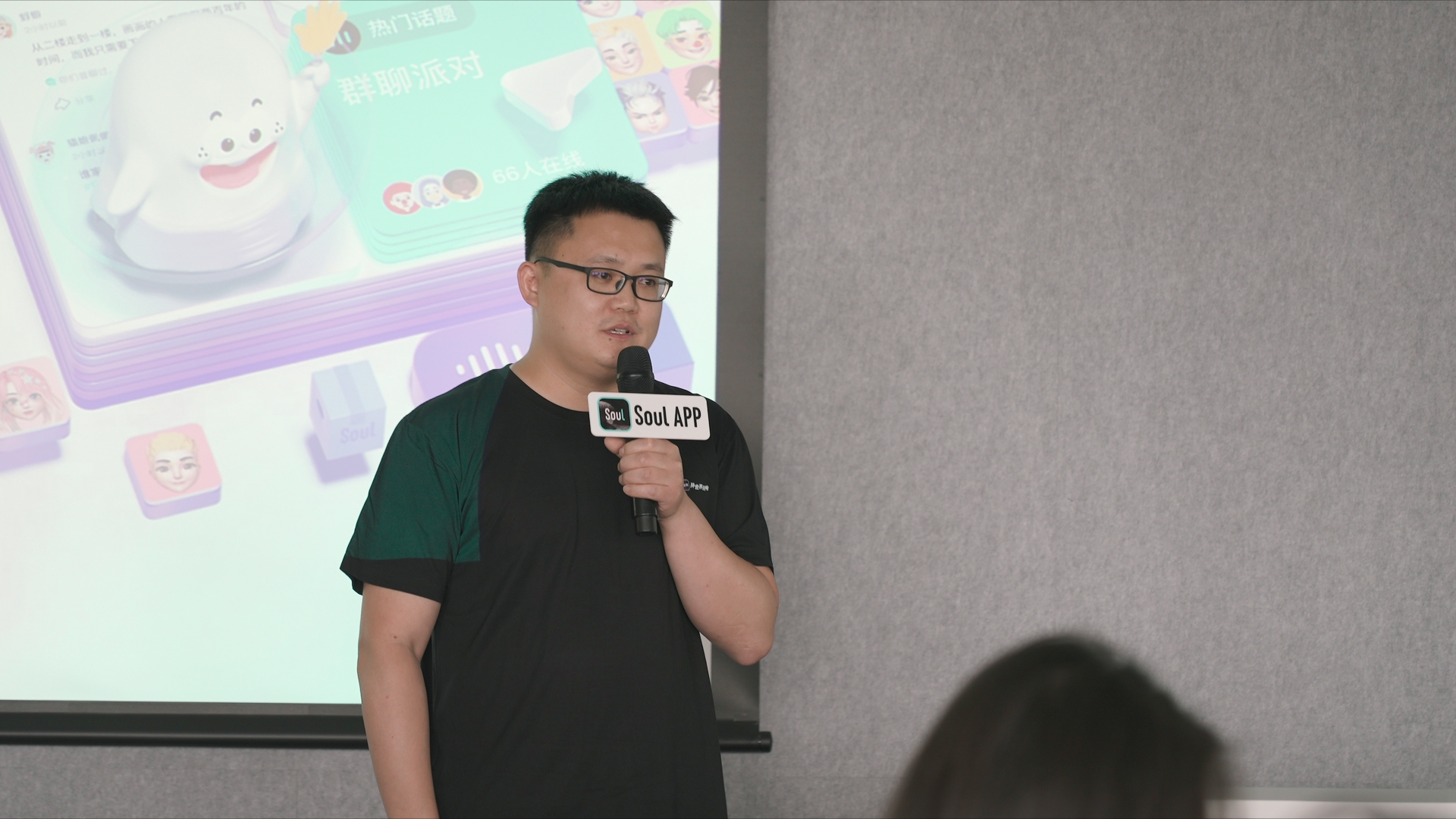Soul App’s 2024 Survey on Gen-Z Attitudes towards AIGC: Potential Goldmine and Likely Cure for Loneliness
Currently, AIGC (AI-Generated Content) has caught on in the market and among the general public. The constant arrival of new AI products such as ChatGPT, Sora and Suno has pushed this wave of technological change to the next level, making a sweeping impact on everyone. As always, technology development is about unlocking creativity, and AIGC is no exception.
Soul App’s CTO Ming Tao told Pandaily, “Originally we were doing this so-called NPC dialogue. It took us 4 or 5 years to reach this level, but now with the large model, it seems that I can translate a conversation in just two or three days. I think that actually does not fundamentally constitute a big competition because social interaction is not just a single function. Just like our AI Goudan or the upcoming app EchoVerse, they are actually the most basic functions and cannot be thrown away. But if you take out this function alone, it cannot provide continuous value. “

AIGC is knocking on the door of a brave new world. How will it influence individuals in their professional and personal lives? And what opportunities are up for grabs?
In an attempt to answer these questions, Just So Soul, a research arm of the social platform Soul App (approximately 80% of its monthly active users are Gen Zers), surveyed Soul users about AIGC (approximately 80% of participants were Gen Zers). The survey received 3,457 valid responses, and three key takeaways were observed:
Over 90% of young people have used AIGC products, with those born in the 2000s being most knowledgeable about AIGC
Based on the White Paper on AI-Generated Content published by the China Academy of Information and Communications Technology, AIGC is a form of content, an approach to content production, and a set of automated content generation technologies.
However, the Just So Soul survey found that this academic concept is not well understood, and 70% of younger generations have a “limited understanding” of AIGC.
Even so, the concept has found its way into everyday life. AIGC products and functions are ubiquitous, both in the workplace and learning environments. For example, they support the one-click generation of marketing copy or meeting minutes.
According to the research, a mere 4.8% of young people have “never used” any AIGC application. In other words, more than 90% have experienced AIGC products or functions. Among them, text generation chatbots like ChatGPT are most popular (65.68%).
The post-00s (individuals born in the 2000s) stand at the forefront of the new technology trend, accounting for the largest share of respondents who “have learned about or tried an AIGC product” (28.71%) and who are “well-informed about AIGC, involved in related industries or research, or proficient at using AIGC products” (6.06%). The post-00s are also the most frequent users of such applications, with 19.95% utilizing AIGC tools daily.
In a way, Gen Zers could be considered as a new form of human being. Professor He Yanhong of Shanghai Jiao Tong University said, “As their neurological systems and mindsets are shaped by Internet technologies, Gen Z may mark a fresh beginning of humanity.”
60% of young people feel positive about AIGC, with over 10% having monetized it
What do young people think of the development of AIGC and the business opportunities that come with it?
Over 60% are sanguine about AIGC: 17.93% “appreciate” it and 45.32% “like” it. On the other side of the spectrum, 1.65% “dislike” it and 0.66% “hate” it.
When asked about why they like the technology, respondents cited “greater work efficiency” (62.78%), “more convenience in life” (54.09%), and “an entertaining, interesting experience” (53.91%). On the other hand, negative emotions stem from three major issues: jobs being lost to AIGC technology (42.86%); AIGC spawning the proliferation of low-quality content (38.1%); rising concerns over privacy and data security (20.3%).
Compared with a similar survey Just So Soul completed last July, its latest study sees a plunge in disapproving opinions and a jump in favorable impressions. It is evident that advances in AIGC technology and adoption have improved youths’ attitude towards AIGC.
Interestingly, young users are starting to generate income from AIGC. Data shows that 14.8% of respondents “have cashed in on AICG” and 43.35% have plans to do so.
Many professionals in advertising, art, and cultural communication have harnessed AIGC technology to make money, and a large portion of the post-00s (42.5%) plan to earn an income through AIGC tools.
SEE ALSO: Soul App: The Gateway to AI-Enhanced Social Networking
60% of young users have experienced AI-powered social networking products, and one third are willing to befriend AI
Social interactions are an ideal scenario for the application of AIGC. Multimodal AIGC has enhanced human-computer interaction in an unprecedented way. Just So Soul discovered that 60% of the surveyed have used AI-powered social networking products before.
Generally, younger generations are open to engaging with AI: 70.35% take a neutral position, 17.99% like to communicate with chatbots, and only 12% are averse to AI interactions.
Why do young people talk to AI? 47.11% stated that it is fun to chat with, never causing an awkward silence or a dull moment. Moreover, chatbots give immediate feedback (45.66%), discuss any topic the user chooses (44.53%), and provide emotional companionship (43.73%).
Data shows that above 50% of young people believe that AIGC products could, or have the potential to, ease loneliness. Only 8% insist that AIGC is “not useful in dispelling feelings of loneliness”.
Significantly, 32.8% are willing, or even eager, to make friends with an AI. As in the sci-fi movie Her, where the protagonist develops a special bond with an AI operating system named Samantha, the evolution of AIGC technology has brought this concept closer to reality. In the here and now, smart social networks featuring the coexistence of humans and AI are starting to take shape.




